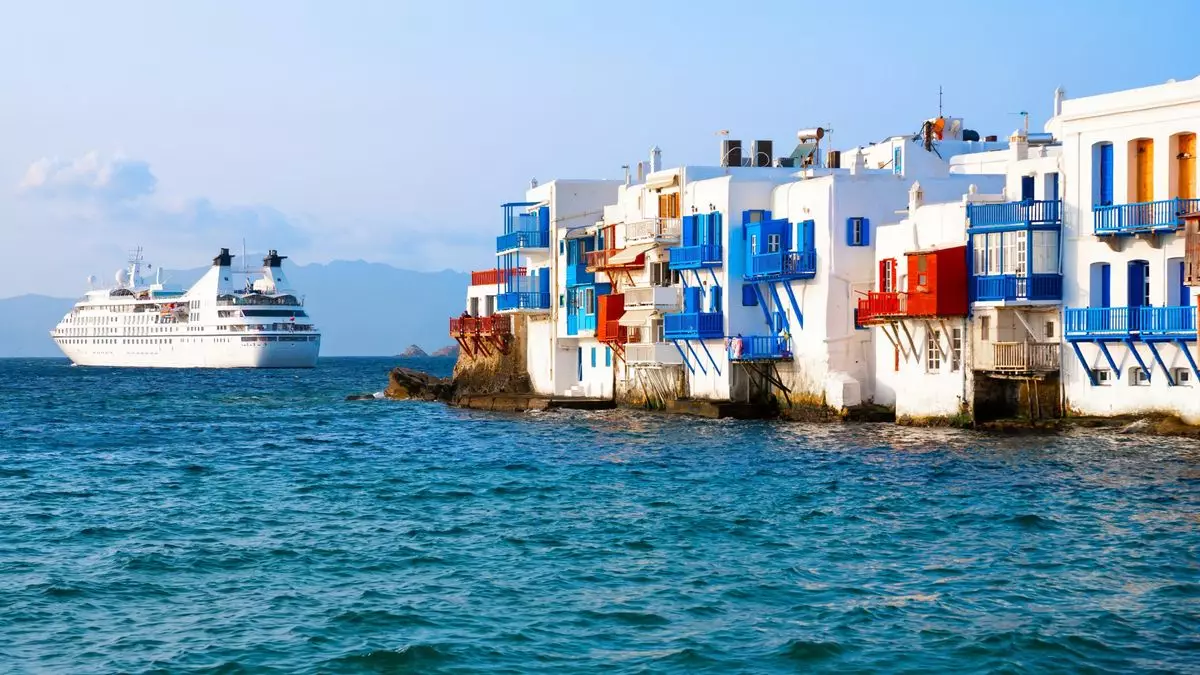The Greek Prime Minister Kyriakos Mitsotakis has recently made a statement expressing Greece’s concerns over the impact of cruise tourism on popular destinations such as Santorini and Mykonos. Mitsotakis suggested implementing restrictions on cruise ship berths or introducing a bidding process for ships to call at these islands. According to a report by Bloomberg, Mitsotakis emphasized that both Santorini and Mykonos are experiencing the negative effects of overwhelming tourism, and he believes that limiting cruise visits may be necessary as early as next year. The prime minister highlighted the economic consequences of overcrowding, stating that visitors spending substantial amounts of money on these islands would not want them to be inundated with tourists, which also poses security challenges for the destinations.
Carnival Corp. CEO Josh Weinstein responded to Mitsotakis’ comments by expressing the company’s willingness to comply with any regulations set by Greek authorities, as they have done with other destinations in the past. Weinstein assured investors that he does not foresee major disruptions as a result of the proposed restrictions in Greece, considering the company’s relatively small presence in the country. Despite the low percentage of Carnival Corp.’s product mix represented by Greece, Weinstein acknowledged the importance of the destination and reiterated the company’s commitment to collaborating with local communities to address their concerns. He cited examples of successful cooperation between the cruise industry and local officials in managing tourism in destinations such as Dubrovnik.
Chris Theophilides, CEO of Celestyal, a Greek cruise line, commended the prime minister’s efforts to regulate cruise tourism and offered suggestions to alleviate overcrowding issues. Theophilides proposed implementing enhanced berth-request systems and scheduled visit times at popular attractions like the Acropolis to allow tourists to enjoy these landmarks responsibly with reduced crowds and minimized pressures on local communities. The Cruise Lines International Association (CLIA) has also been actively collaborating with destinations and cruise lines worldwide to address concerns related to overtourism. CLIA worked with Juneau to establish an agreement aimed at capping passenger capacity to accommodate the community’s growing number of cruise visitors.
Travel advisors have shared mixed opinions on the proposed restrictions on cruise ships visiting Greek islands. Lainey Melnick from Dream Vacations in Austin, Texas, supported the idea of more regulation to preserve the natural beauty of the islands, which she believes is being compromised by the influx of tourists arriving on large cruise ships. On the other hand, Robin Leonard, owner of Polaris Travel Advisors in Clayton, Mo., expressed confidence in CLIA’s efforts to work with destinations and recommended implementing measures to manage the increasing cruise capacity effectively. Leonard acknowledged the challenges faced by countries heavily dependent on tourism and anticipated a rise in calls for regulation as cruise capacity is expected to grow significantly in the coming years.
While Greece remains a popular destination for travelers, concerns about overcrowding have prompted travel advisors to recommend visiting during the shoulder season to avoid large crowds and the summer heat. The Hellenic Ports Association reported a significant increase in cruise ship visits to Santorini, with 800 ships calling at the island last year, carrying 1.3 million passengers. The daily passenger limit of 8,000 set in 2018 has not been sufficient to address the rising numbers. As the debate over cruise ship restrictions continues, stakeholders in the tourism industry are exploring ways to balance the economic benefits of tourism with the need to preserve the cultural and environmental integrity of these iconic destinations.

